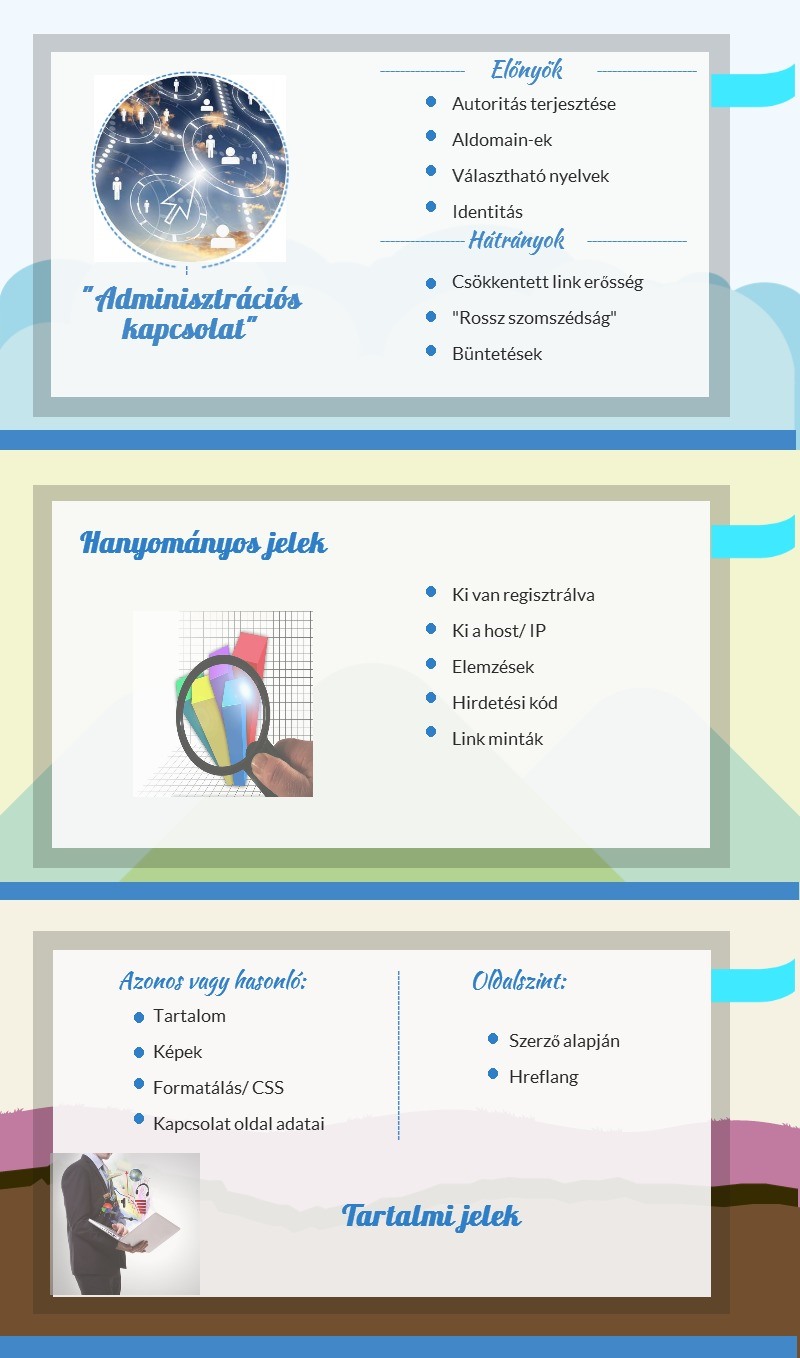How does Google know which websites we are targeting? | Weboptim
A website's position in the search results is influenced by many factors: site settings, keywords, inbound links, etc. But how does Google know if you are the administrator of a page, and how does it use this information to rank you? Is it an advantage or disadvantage to have more than one website?
Whoever is the administrator of one or more sites controls the links and content on those sites. These can be different subdomains or websites that have multiple owners. Google puts a lot of effort into finding these sites, as links between sites under the control of the same person may not be as valuable as links from other sites.

What are the benefits of having more than one website?
There are cases where Google considers it a positive feature to have multiple websites that are linked to each other. This way we can share the authority of the site (authority).
For example, if we have a website that is already successful in a country and we want to expand, we can launch a new site in a new country. It would be a huge job to build up awareness again from scratch, so telling Google that it's our site might be a much better solution. That way we let it know that it is credible and valuable.
The same method can work aldomainek also for. If you have a blog (which is much easier to manage than a website in terms of development) and you want to have a similar authority to the website. If you let Google know that you own it, it can often help a lot with ranking.
Multilingual sites the situation is similar. We have content in several languages, English, German, Hungarian, either within the same website or on different subdomains, and we want them to be counted by Google as equally valuable websites.
But what are the negative effects?
The most common problem is that reduces the strength of incoming links. For this reason, many website owners try to hide from Google that they have more than one (similar) website.
If we have 6 websites, and are interconnected through links, Google can simply filter out those links so that it doesn't have to count them or pay a penalty to the sites.

A penaltyis now strictly enforced by Google. If you decide to replace an existing penalised page with a completely new one, with new URLs, you may sometimes find that the new domain is also penalised, even though it is not the one the bad links point to.
But how does Google know it's the same site owner?
Not all possible signals are known. But there are a few clues that can tell us what Google knows about us.
Basically, Google looks at the following for a website: owner, WhoIS posts, host Name, IP address, availability. A SpyOnWeb program to check this information yourself (This information is available to everyone on the web.) Google Analytics and AdSense codes can also be found here.
It also matters link pattern, i.e. the proportion of sites that are connected to each other. Google sees almost the entire system of links on the internet and examines them using various statistical analysis methods. This allows it to determine with relative accuracy which pages are under whose control.
There are signs that we don't even think matter. If 2 websites very similar or identical in content, it is also a very strong signal in Google's eyes. In this case, it will probably look for some other data to see if it really is the same administrator. But it's just as likely same picture, on 2 different websites, with the same text, can also refer to this. Even something as simple as a very similar link page description can be a sign to Google that these websites are related.
If you have the same password for several of our websites template we use or very similar CSS and HTML formatting does not in itself mean anything, as there are countless templates on the internet. However, in combination with other signs, it can be a very strong influencing factor.
Site level is an important feature of Author. We have all come across great articles by great authors. When content comes from someone Google knows is trustworthy, it can also affect the ranking of the content, improving the page's ranking.
The language is also important for content (hreflang). If your website is available in several countries and languages, using this simple attribute can help you to create a link between sites, which can also help you to rank them.

So you can see that it is difficult to hide these links from Google, as it has a lot of information about each page. If it finds a sign that could indicate the same website owner, it will do the right research to find out if this is the case.
Source: moz.com